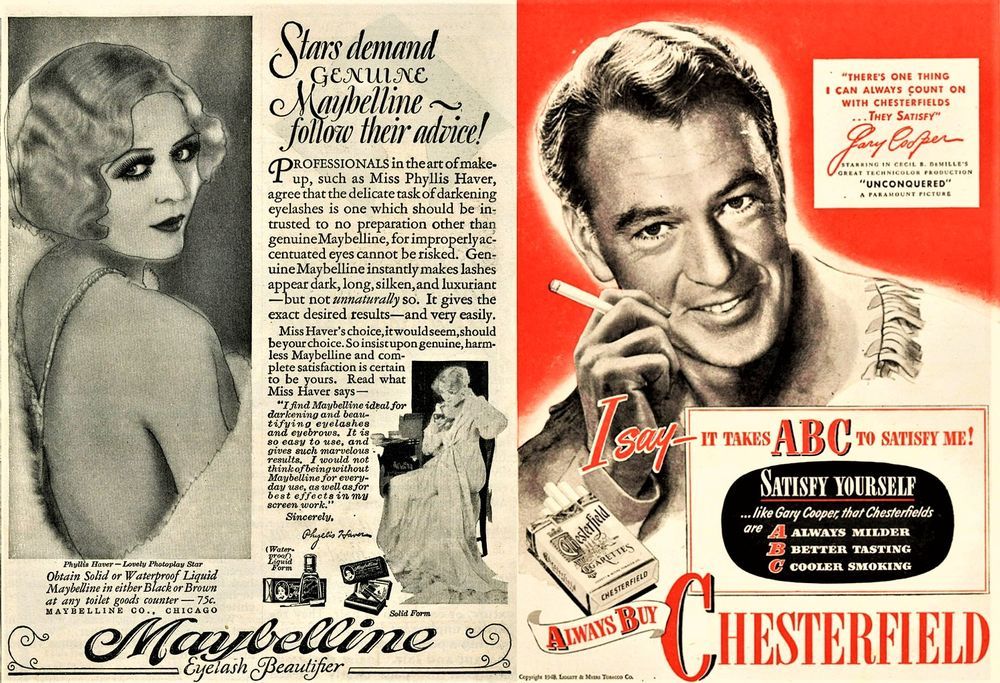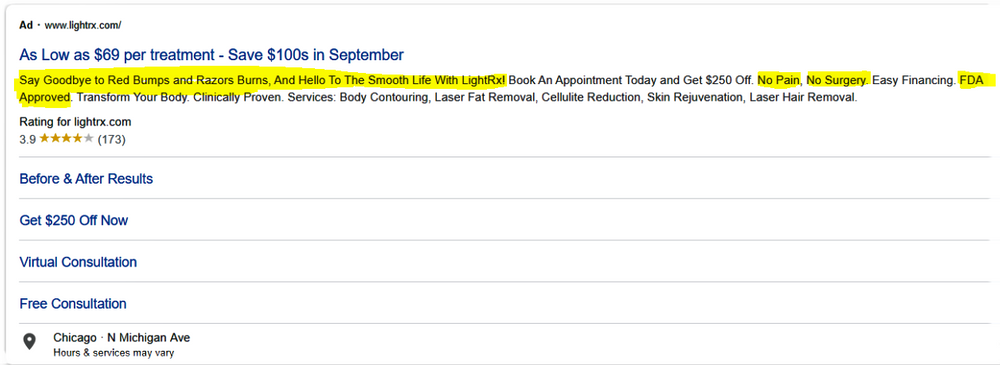Learning of principles of persuasion techniques and their implementation is required literature for every marketing professional.
They are beneficial to an astounding degree that marketers often employ them in all their advertising efforts.
By comprehending and discovering ideas to perform these effective techniques, you can shape your PPC campaigns and write your ad copies to influence desirable customer behavior.
Displaying your customers' feedback - Social proof
"The greater the number of people who find any idea correct, the more the idea will be correct."
The social proof principle and all other principles discussed in this article were introduced by the renowned Dr. Robert B. Cialdini, author of the famous book Persuasion, and a foundational expert in the science of influence and its ethical application in business.
People tend to assume that an action is correct to a higher degree if others are doing it. What might be startling to witness is that this is heavily exploited in advertising.
Marketers inject social proof everywhere: in advertisements, landing pages, email content, all are packed of testimonials and reviews, both genuine and fake.
Testimonials are nothing new. Apart from celebrity commercials, from the 1970s, real-life people and satisfied customers have surged to advertisements' surface and started promoting and supporting products.
If you put in an ad that the product is "fastest-selling" you don't have to add supporting evidence to that statement.
More often than not, by merely implying that many others want the product, that claim can appear substantial enough without further convincing.
How you can translate the social proof principle into search ad:
- Communicate how many testimonials you have
- Insert a testimonial in the ad
- Tell how many tickets you have sold
- Specify how many attendees you have
- Mention awards for your products/services
By employing the principle of social proof, you can secure more validity and legitimacy for your brand.

Using authority figures as your brand's advocates - Authority
It is in our nature to obey authority figures. Owing to the psychological force that makes us follow authority somewhat blindly, we are also prone to indubitably trust experts in a particular field.
When an expert like a doctor, scientist, or a professor makes a certain claim, we often thoughtlessly trust that information's accuracy only because it came from a credible "expert."
Authority has its use in the marketing world. Think of a toothpaste commercial where some dental expert or oral healthcare expert talks about how that toothpaste is a life-changer for people with sensitive teeth or overall oral health.
Many advertising professionals are cashing in serious money, riding on people's compulsion to obey authority figures.
Some of the ways to translate this association principle into search ad copy:
"Trusted by nutrition experts.",
"#1 cream for sensitive skin recommended by dermatologists."

Getting people to like your brand - Liking
We prefer to respond with an affirmative expression (yes) to the requests of someone we know and like.
Still, we need to stop for a minute and ask ourselves what factors cause one person to like another person, or for our purposes, a brand? Can you answer that question without having to give it a thought?
How do we get them to like our brand when they haven't heard of us before? How to get them to respond by developing a favorable first impression?
Relying on the liking based on similarity, brands can utilize similarity's different aspects: opinions, personality traits, background, or lifestyle.
By appearing to be similar to your potential customers, you grow your chances of converting them into long-term customers.
Your customers should feel that they can relate to your brand.
If your brand can relate to them, if you address their pain points with expressed understanding and relatability to their problems, they can establish a positive connection with your brand.
Another aspect of liking relates to physical attractiveness and association principle in advertising. You can recognize with ease this principle at work. You can name at least five brands that use a particular person to lend their favorable traits to the product without much thinking.
Even if we refuse to believe in it, this influences our judgments.
Good-looking female and male models lend their beauty and desirability to the advertised products. If we find them attractive, we will most likely find the product appealing. People react to the product in the same ways they respond to the beautiful models solely associated with it.
The same goes for celebrities. Linking celebrities to products is another way advertisers exploit the association principle.
This isn't anything new as celebrities lend their name to various brands for decades; we could witness celebrity promotion way back in the early 20th century, like the following examples of print ads advertised in the 1920s and 1940s.

See what can be a problem here?
How are PPC professionals to incorporate this principle in their ad copy for search campaigns only? The trouble with search ads is that you cannot show a likable person next to your product or service.
In this case, liking and the authority principles go hand in hand, which means you can use titles and mention experts in a particular field you know will be relevant to the searchers.
While you can use an expert or celebrity name, most common practices are inserting titles and organizations that we all perceive as an authority.
Suppose you sell kitchenware and cookware and have a partnership with a celebrity chef or TV personality. In that case, you should highlight in your ad the celebrity endorsement to convey the desired image you want to show to food lovers and amateur cooks.
Without going into if the ads are good or bad, or mediocre, we supplied some association principle advertising examples below:

The ad addressed the user's pain points (razor burns, the possibility of painful treatment, etc.), which means that it understands what the user is going through; and then offered a solution (smooth skin without surgery). It also stated that the treatment or some aspect of it, probably a device, is FDA (Food and Drug Administration) approved, which increases the chances that the user will trust in the quality of the advertised service.
The same clinic seems to not have their negative keyword section up to date.

Less available = more desirable - Scarcity
We are all far too familiar with the scarcity principle in our attempts to sell more on account of created urgency. As a marketing professional, you can see right through it, yet you must've failed to say "no" and skip the offer more times than you might want to admit.
Following the rule of the few, if something is less available, people are more likely to exercise specific behavior. They behave in a certain way because they realize they need to act fast so that they don't lose the indicated opportunity and rely on a belief that if the item is scarce, it means that it is popular.
In ads, we translate scarcity into words:
"Hurry, before it's gone.",
"Today only."
"Only X items left."
"Get your favorite piece before it's too late."
Emphasizing that the product is strongly liked and in demand, we place a user to think that he/she is in direct competition with other people for it. The competition component induces a powerful motivating element. Regularly, the joy is not in experiencing a scarce good but in possessing it.
A Tip: when using actual numbers, "X" pieces left, try to use a higher number than the quantity displayed on the website, so when the users land on the destination page, they go under the impression that the piece will sell out if they don't act immediately. (Unless the quantity is too high, so it stops being appealing.)
"Because" - Offering a reason
Why should you buy from us? Why do we offer a discount? Why should you shop now?
People like to have a reason for what they do, a reason that justifies their behavior.
Why should you buy from us? Because we have trained the majority of Fortune 500 in the hospitality industry.
Why do we offer a discount? Because we want to free up room in our store for an upcoming collection.
Why should you shop now? Because we offer free shipping today only.
An excellent way to present your message and remove the obstacles your searchers face in complying is justification. Adding the word "because" could become a game-changer for your ad.
Feeling obliged to return the favor - Reciprocation
As Nick Kolenda said in his book Methods of Persuasion: How to Use Psychology to Influence Human Behavior, "One of the most powerful social norms is reciprocity. There's a reciprocal seesaw connecting us to other people, and it craves balance."
People deal with intense cultural pressure to reciprocate a gift, whether the gift is wanted or unwanted. But, that level of pressure doesn't exist when it comes down to purchasing an unwanted commercial product.
While great to use for existing customers in the form of freebies or discounts, handwritten notes, and compliments to make them feel special or lean on for lead magnet technique, reciprocity is hard to implement in search ads targeting cold traffic.
Search ads and reciprocity
Using this realization as a starting point, there isn't a clear answer to how "free," "no-strings-attached," "money-back-guarantee" can be viewed and utilized in search ads, as a reciprocity technique or not.
Let's take free shipping and a free trial as examples. While free shipping can serve as a gift that nudges people into feeling obliged to return the favor and make a purchase, free trials aren't unconditional because they don't last forever, but rather expire after a specified time.
Getting "yes" after "yes" - Consistency
Consistency is a powerful principle of persuasion technique that blossoms out of people's psychological need to maintain consistent attitudes and behavior.
You can utilize consistency by getting potential customers to commit to something relatively small (download your guide or share a post), and then increase the likelihood that those potential customers will ultimately see themselves as customers and convert.
A testimonial doesn't serve just as social proof. By getting your customer to publicly approve and praise your product even if they don't mean it, they will change their attitude to conform to their behavior - by growing to like your product, which implies that they will become a repeating customer. You can get people to praise your product by offering an incentive, but not too great (large) since the customer can then associate and justify their behavior with a large award.
It is easier to say "yes" again if you have said "yes" before.
Copy in search ad is a start position toward your goal of coming to their first "Yes!".

